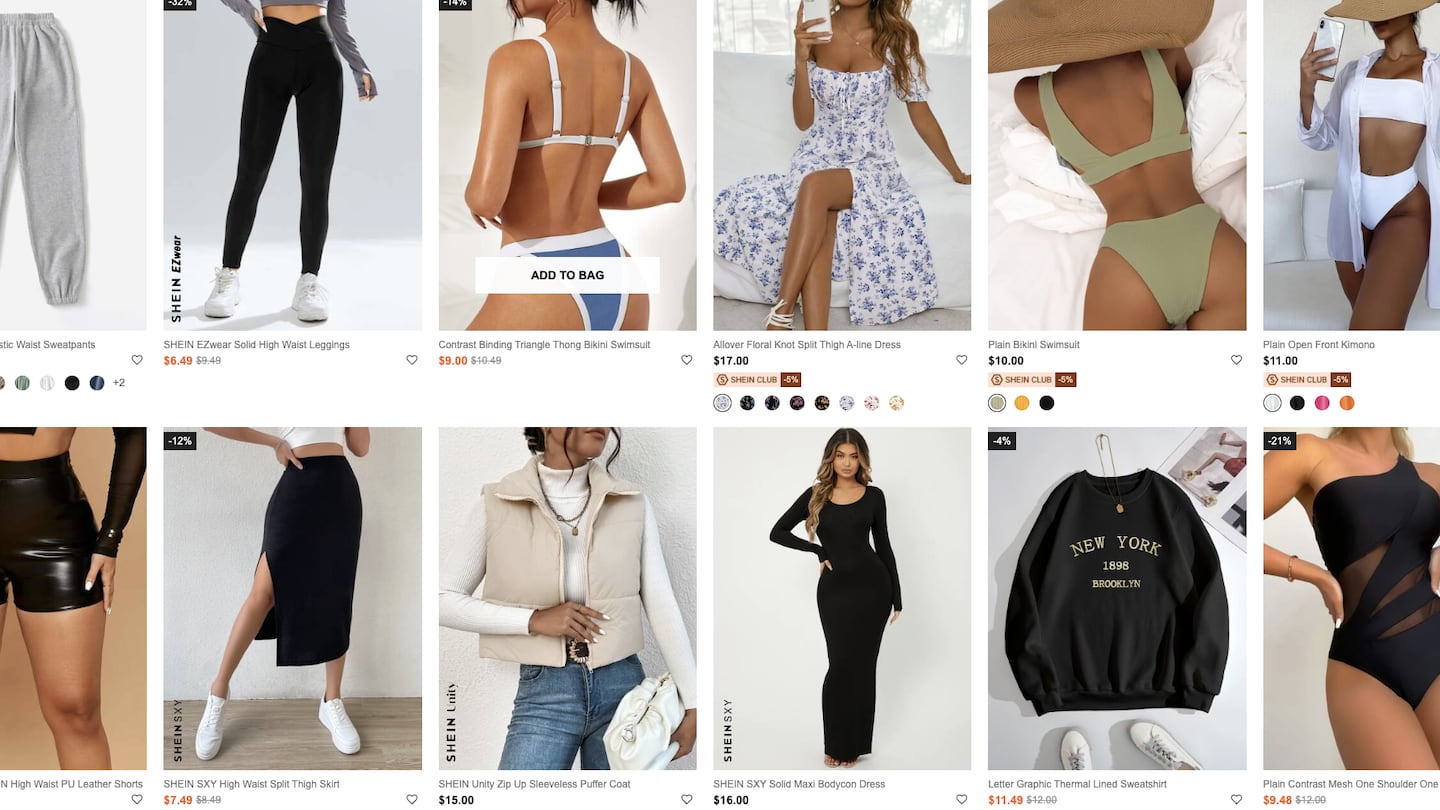
The Business of Fashion
Agenda-setting intelligence, analysis and advice for the global fashion community.

Agenda-setting intelligence, analysis and advice for the global fashion community.

The campaign was launched Wednesday by Place Publique, a centre-left political party in France. Its founders include European parliamentarian Raphaël Glucksmann, who has previously targeted fashion’s links to forced labour in China.
Fast-fashion is under growing scrutiny from policymakers, and Shein has become a particular lightning rod for criticism. It’s explosive growth and ultra-fast, ultra-cheap sales model have made the company a symbol of fashion’s negative environmental and social impact, while the company’s Chinese origins have made its position more politically charged as tensions between China and Western markets grow.
In a petition that has received nearly 11,000 signatures in less than 48 hours, “Stop Shein” called out allegations of labour abuses in the company’s supply chain — including links to Uighur forced labour — and the huge environmental toll created by placing thousands of new, largely plastic, clothes on the market every day.
”Overconsumption extolled by Shein is a weapon of mass climate destruction,” the petition reads. It calls on French minister of the economy Bruno Le Maire to regulate marketing that encourages overconsumption and delist or block websites or brands that put more than 1,000 new styles a day onto the market.
ADVERTISEMENT
France is already working on a number of policies to encourage the fashion industry to become more sustainable and it’s unclear whether Stop Shein’s proposals will gain wider traction.
But the campaign adds to the controversy around the ultra-fast-fashion giant. Earlier this year, an advocacy group with anonymous backers known as Shut Down Shein launched in the US, where lawmakers have also called on the Securities and Exchange Commission to verify Shein does not use forced labour before allowing the company to go ahead with reported plans for a US IPO.
Shein did not immediately respond to a request for comment. The company has previously said it has zero tolerance for forced labour. It has sought to address the criticism levelled against it more broadly, hiring lobbyists and promoting efforts to improve its environmental footprint and support better labour conditions within its supply chain.
Learn more:
Will Europe ‘End Fast Fashion?’
The EU parliament has backed recommendations to toughen proposed measures to tackle the excessive production and consumption of fashion.
The industry needs to ditch its reliance on fossil-fuel-based materials like polyester in order to meet climate targets, according to a new report from Textile Exchange.
Cotton linked to environmental and human rights abuses in Brazil is leaking into the supply chains of major fashion brands, a new investigation has found, prompting Zara-owner Inditex to send a scathing rebuke to the industry’s biggest sustainable cotton certifier.
Over the last few years, the run-up to Earth Day has become a marketing frenzy. But a crackdown on greenwashing may be changing the way brands approach their communications strategies.
This week, Sephora announced plans to double down on ‘green’ and ‘clean’ product labels, leaning into an increasingly risky marketing tactic even as a greenwashing crackdown has prompted other brands to pull back.